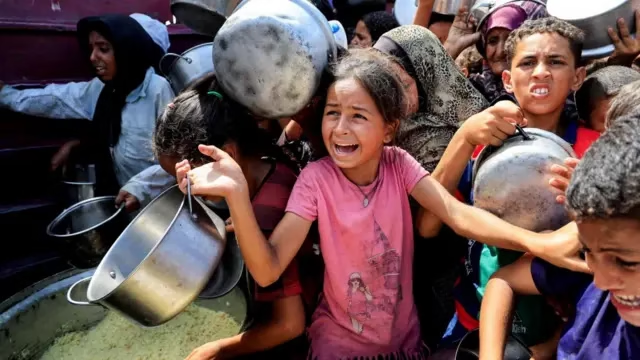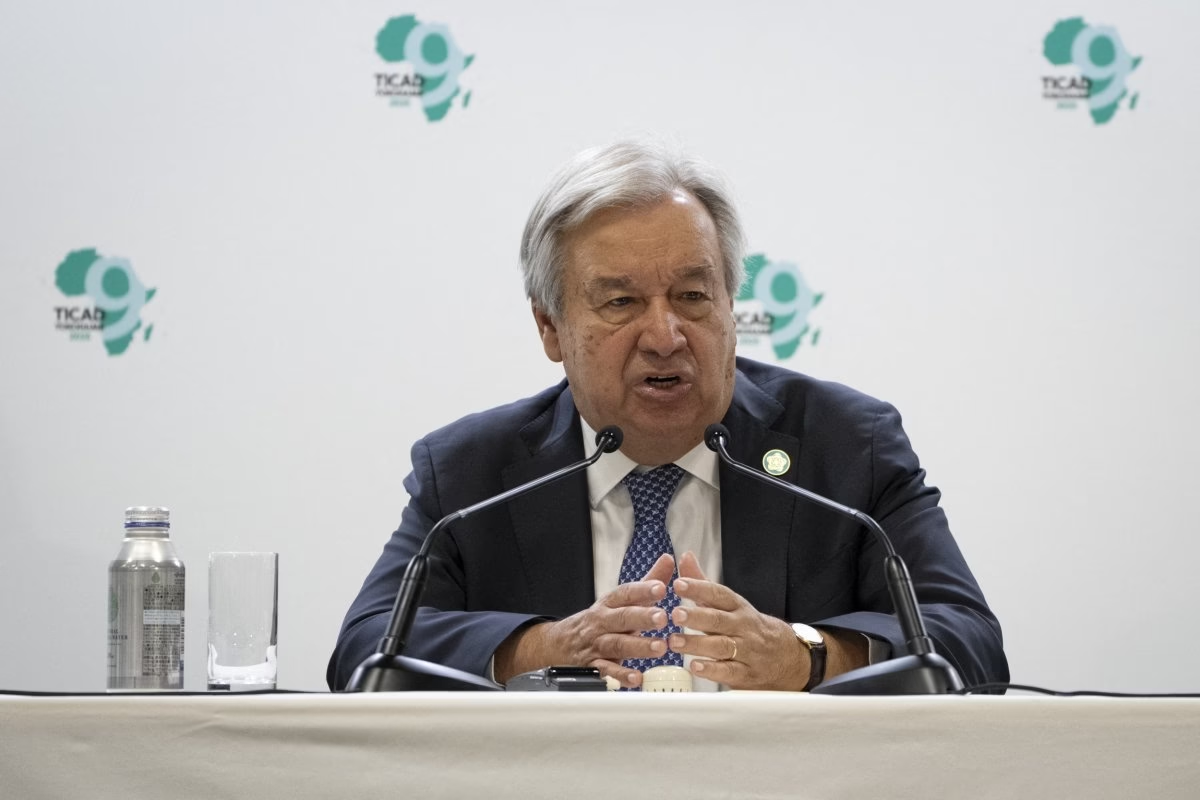
The humanitarian crisis in Gaza has reached an alarming level, with United Nations Secretary-General António Guterres warning that the worsening famine is not just a tragedy but “a failure of humanity itself.” His strong statement has brought renewed global attention to the plight of civilians in the besieged territory, where hunger, displacement, and ongoing conflict have left millions at risk.
Famine in Gaza: The Humanitarian Emergency

The phrase “famine in Gaza” has now become a grim reality. Reports from UN agencies and humanitarian organizations describe devastating shortages of food, clean water, and medical supplies. With supply routes heavily restricted and infrastructure severely damaged, aid groups are struggling to deliver even the most basic assistance.
According to the UN Relief and Works Agency (UNRWA), nearly the entire population of Gaza is facing acute food insecurity. Families are relying on scraps, going days without proper meals, and children are among the hardest hit. Malnutrition rates have skyrocketed, with aid workers warning of irreversible damage to health and development.
UN Chief’s Warning: A Global Call to Action
Speaking at a press conference in New York, Guterres did not mince words. He described the famine in Gaza as “a preventable disaster,” stressing that the crisis is the direct result of human actions, not natural causes.
“This is not a drought, not a crop failure, not a natural disaster,” Guterres said. “It is a crisis created by conflict, restrictions, and indifference. To allow famine in Gaza to continue is a failure of humanity itself.”
The Secretary-General urged world leaders to act urgently by pressing for humanitarian access, funding relief operations, and working toward an immediate ceasefire.
Barriers to Humanitarian Aid
One of the most pressing challenges has been the difficulty in delivering aid to Gaza. Convoys have faced long delays, limited entry points, and security risks due to the ongoing conflict. Despite international appeals, humanitarian corridors remain fragile and inconsistent.
The World Food Programme (WFP) reported that food supplies entering Gaza are far below the levels needed to avert famine. Aid trucks that do make it across the border face damaged roads, fuel shortages, and the challenge of distributing resources in war-torn areas.
International aid organizations warn that without sustained and secure access, relief efforts will not be able to match the scale of the crisis.
International Reactions
Guterres’ remarks have sparked reactions across the globe. Several governments and human rights organizations echoed his concerns:
- The European Union called the famine in Gaza “a collective moral failure” and urged all parties to allow unrestricted aid.
- Humanitarian groups such as Oxfam and Doctors Without Borders emphasized that famine is entirely avoidable if the international community takes decisive action.
- Some governments in the Middle East demanded stronger pressure on Israel to ease restrictions, while also urging Palestinian groups to ensure aid is not obstructed.
The United States, a key player in the region, has pledged additional funding for humanitarian relief but faces criticism for not doing enough to secure safe corridors for aid delivery.
The Human Cost
Behind the political debates and diplomatic statements lies the harsh reality for people in Gaza. Families are forced to make heartbreaking choices between food, medicine, and safety.
Aid workers have reported seeing children faint from hunger, mothers unable to breastfeed due to malnutrition, and elderly people collapsing from exhaustion. Hospitals, already overwhelmed by casualties from the conflict, are struggling to treat patients suffering from starvation-related illnesses.
The UN estimates that tens of thousands of children are now at risk of dying from preventable causes if aid does not reach them quickly.
Calls for a Ceasefire
The famine in Gaza is deeply tied to the ongoing conflict. UN officials stress that without a ceasefire, humanitarian relief will always remain limited.
Guterres reiterated his call for an immediate ceasefire, saying:
“Ending hostilities is the only way to create the space for humanitarian aid to flow and for the people of Gaza to have even a chance at survival.”
Diplomatic efforts are ongoing, but divisions in the international community continue to stall progress.
Conclusion: A Test of Global Conscience
The famine in Gaza has become more than a regional crisis—it is a test of global conscience. The UN chief’s words underscore the urgency of the situation: the world has the resources and the capacity to stop famine, yet political inaction risks condemning millions to further suffering.
As António Guterres declared, allowing famine in Gaza to continue is not just a failure of policy or diplomacy. It is “a failure of humanity itself.”



